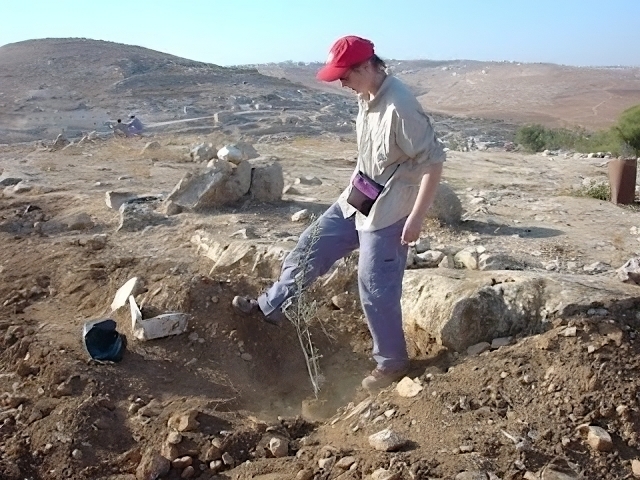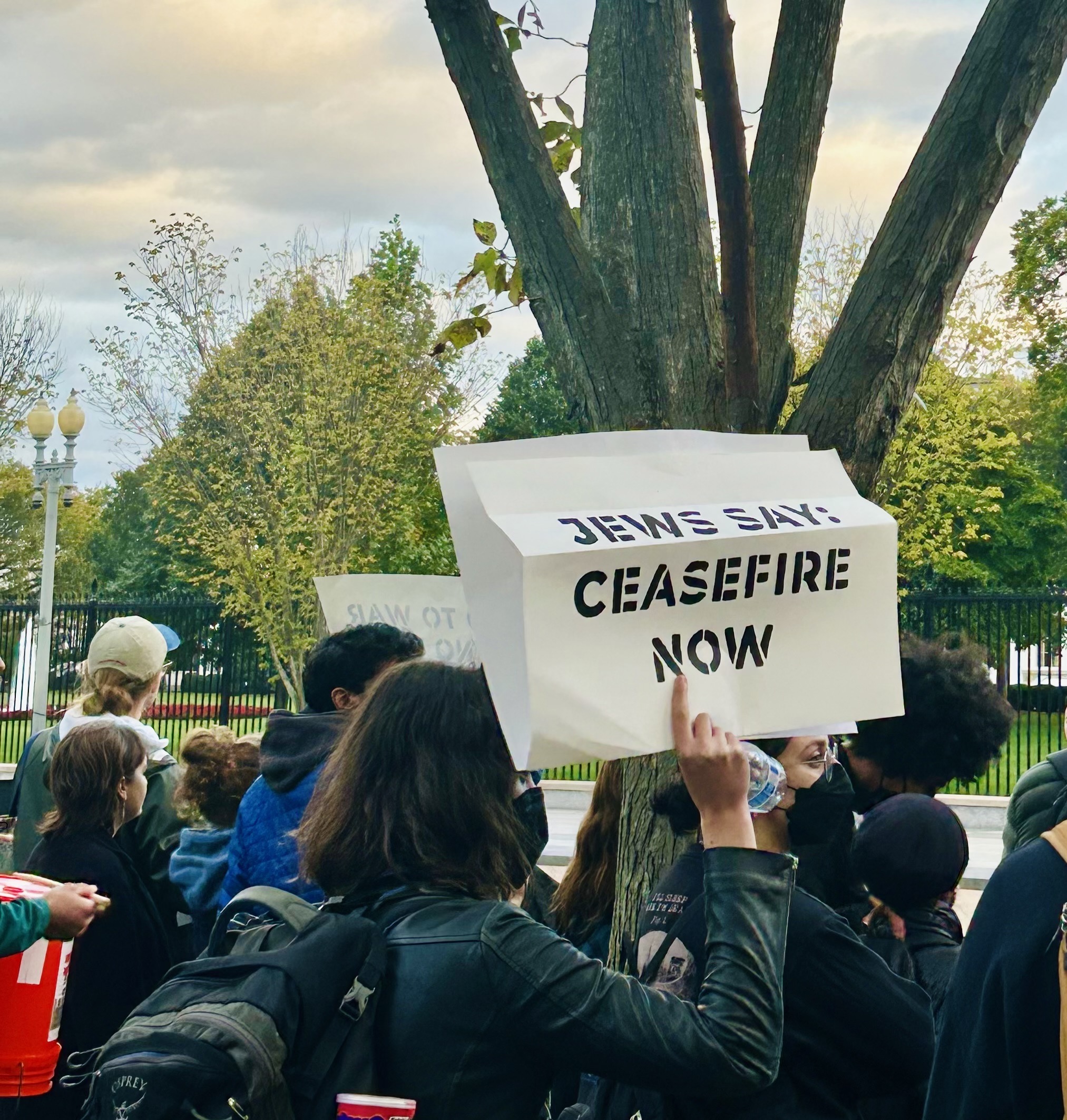And until there is no longer first class and second class citizens of any nation…well, everywhere is war.
—Bob Marley
Almost exactly 20 years ago, I was volunteering in the West Bank, Palestinian territory, accompanying a Palestinian community whose land and livelihood was under threat from a nearby illegal Israeli settlement. On the morning of September 29, 2003, together with a colleague, I was walking Palestinian children to school. In order to reach their daily destination, they had to pass by the settlement, where they were regularly harassed and threatened. As we walked by that morning, we were jumped and badly beaten by a group of Israelis who came from inside the settlement. The kids got away; my colleague and I ended up in the hospital.

As a result of history that is too complex for this short reflection, historical Palestinian lands are reduced to Gaza, which is a refugee camp/prison holding 2.4 million people, with limited services and blocked borders; and the West Bank, where families retain some of their historical land (although Israeli settlements have annexed much of it), but are under constant threat from the settlements, and where there is also limited freedom of movement and limited opportunities for young people. Palestinians are second-class citizens in a land that also belonged to their ancestors. When faced with limited economic opportunities, together with threats to security, people will often migrate if they can, and they may join armed groups if they feel trapped and with no good options to resolve their lives. People in Gaza feel trapped.
I am filled with grief over the events of the last week. Hamas brutally terrorizing and massacring innocent civilians is abhorrent, no matter the context. In response, Israel is engaging in equally brutal collective punishment, which is illegal under international law. Collective punishment means indiscriminate bombings of civilians, including the hospitals, and shutting down what few services are available in Gaza, such as electricity and water. The Israeli government’s call for Gazans to leave is curious, given that all borders are closed. A request for 1.1 million Gazans, nearly half of whom are children, to relocate within 24 hours is beyond inhumane.
A little over 30 years ago, after a brief stint at the State Department Soviet desk, I was working in the then-Soviet Union, just about the time it broke up, supporting the efforts of human rights organizations to resolve long-standing cases of Soviet Jews denied permission to emigrate. These “refuseniks” were subject to discrimination and arbitrary detention and lost many of their rights once the Soviet government “refused” a request to emigrate, including and especially the right to freedom of movement. When the borders opened up and the new government permitted emigration, the U.S. and Europe took a few, and the vast majority settled in Israel. The history of so many Israelis is also a history of brutality and denial of basic rights. Many Jews felt trapped in the Soviet Union. Armed groups were not a viable option under Soviet rule, but they were desperate to emigrate.

Everywhere is war. And the United States will send weapons. Our weapons fuel nearly every war, it seems. Our government’s first response to the current crisis is not to press for de-escalation or nonviolent solutions or a ceasefire or negotiations. The first response is to support revenge and retribution with weapons. This is not the moral leadership we so desperately need right now.
Without an immediate ceasefire, this conflict has the potential to escalate into a regional war, as countries take sides and arm their preferred victor. Even if it does not, there are already thousands of people killed, thousands more injured, and much more violence coming. So much suffering.
Nonviolence works. Nonviolent resistance was the remedy that moved the country and the world forward from apartheid in South Africa, to cite one of many instances. I was in the West Bank 20 years ago to support nonviolent efforts. I believed at the time, and I still believe, that sufficient non-violent organizing and action could transform the conflict. But there are never enough of us. There is nonviolent leadership among Palestinians, but none with the strength of Hamas, at least not yet. There is nonviolent leadership among Israelis, but none with the strength of the current government, at least not yet.
Our country’s actions have consequences internally, in the example we are giving our children and our communities about the best way to resolve conflict. There are already reports of hate crimes against Palestinians and Jews, in the U.S. and elsewhere. Our addiction to violent solutions ripples far beyond the immediate conflict, and there is no need for me to cite examples.
What if we put our efforts toward funding nonviolence, instead of feeding the war machine? What if we teach our communities and our children nonviolent methods and solutions, instead of a singular focus on the second amendment? What if the United States and other countries refuse to provide additional weapons on either side and instead call for a ceasefire and insist on genuine negotiations that address the root issues? Although both sides of this conflict bring a history of collective and generational trauma, there will be no peace until the world ends its tolerance for Israel’s ruthless military occupation and routine collective punishment directed at Palestinians.
Along with 23 other organizations, Quixote Center has signed a letter to Members of Congress, appealing to them to refrain from taking steps that will escalate the violence, and to:
1. Publicly call for ceasefire, de-escalation and restraint by all sides;
2. Call on all parties to abide by the laws of war, including the Geneva conventions and customary international law;
3. Prioritize steps to secure immediate release of hostages and ensure international protection for civilians.
We will continue to seek out ways to appeal for an end to Israel’s subjugation of Palestinians, for nonviolence, and for peace and healing on all sides.
Additional Reading
Churches for Middle East Peace Statement
International Law on Collective Punishment


